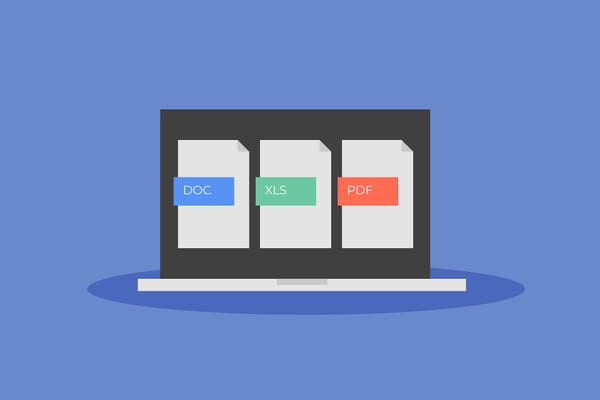When Responding to Negative Reviews Goes Wrong: A Lesson from an Australian Real Estate Agency

Negative reviews are an inevitable part of running a business. But how you handle them can define your reputation. One Australian real estate agency became a glaring example of what not to do, turning a dissatisfied renter's Google review into a full-blown scandal. The story serves as a cautionary tale for businesses everywhere.
The Story: The Angry Tenant vs. the Vengeful Agency
A renter, frustrated with an agency's service, left a negative Google review after reporting them to NSW Fair Trading: "Highly unprofessional. I would question how many of your 5-star reviews are fake. Your response to an emergency in a rental property is more than three full days. Shame on you."
But while a negative review is something most businesses address professionally, this agency went on the offensive—and crossed a line.
In response, they unleashed a public retaliation that shocked onlookers. They replied to the review by publishing the tenant's full name, occupation, and financial details, including accusations of unpaid rent.
The response was personal and scathing: "I am not sure if we have upset you by chasing your unpaid rent so many times. We will not be apologizing for that. You work as an accountant according to your LinkedIn profile, and as an accountant, you should know how to pay rent on time."
When the tenant asked for the personal information to be removed, the agency refused and escalated the situation. They even threatened to release more personal details, including health information. This is called doxxing.
What Is Doxxing?
What the agency did in this case is known as doxxing—a term that refers to the act of publicly sharing someone’s private or personal information online without their consent. This can include details like full names, addresses, occupations, financial information, or even health records.
Doxxing is often used as a form of retaliation or intimidation, and it can have serious consequences for the victim, including emotional distress, reputational damage, and even threats to their safety. It’s not just unethical—it can also be illegal, depending on the circumstances and the laws in place.
The Aftermath: Legal Consequences
The tenant filed a formal privacy complaint with the Office of the Australian Information Commissioner (OAIC), which launched an investigation. The findings were damning:
- Privacy Violations: The agency violated the Australian Privacy Principles (APP) by publishing personal information without consent.
- No Privacy Policy: The agency lacked a transparent privacy policy explaining how tenant information would be handled, a basic requirement under privacy laws.
- Threats to Escalate: The agency's threats to disclose additional sensitive information further aggravated the situation.
As a result, the OAIC ordered the agency to:
- Remove the tenant's personal information from Google reviews.
- Issue a formal letter of apology.
- Train staff on proper data-handling practices.
(Source: choice.com )
Why This Response Was a Terrible Mistake
The real estate agency's actions turned a solvable issue into a public scandal. Rather than using the review as an opportunity to address concerns and demonstrate professionalism, they chose a path that only amplified the problem. Here's why their response was a terrible mistake:
- Privacy Violations: Sharing private information is unethical, unprofessional, and often illegal. It destroys trust and can lead to fines or legal action.
- Escalation of Conflict: Instead of resolving the issue, the agency's response inflamed it, drawing attention to the original complaint and tarnishing their brand.
- Missed Opportunity for Resolution: Negative reviews are a chance to show empathy and a commitment to improvement. The agency's reaction only confirmed the tenant's dissatisfaction.
Best Practices for Responding to Negative Reviews
To avoid making the same mistake, businesses should follow these simple guidelines:
- Stay Calm and Professional: Avoid emotional or defensive responses.
- Protect Privacy: Never share personal or sensitive information, even if you feel the review is unfair.
- Acknowledge and Empathize: Show that you understand the concern and take it seriously.
- Offer a Resolution: If possible, propose a way to address the issue.
- Take the Conversation Offline: Encourage the reviewer to contact you directly to resolve the matter privately.
Related:
- How to Spot and Protect Your Business from Fake Reviews: Red Flags, Tips, and Tools
- How to Deal with or Remove Negative Google Reviews (Fake or Legitimate)
Need Help Navigating Personal Data Privacy?
Handling sensitive information and online interactions doesn't have to be stressful. With Scam Copilot, included in Bitdefender Ultimate Small Business Security, you have a trusted cybersecurity advisor at your fingertips, ready to help 24/7. You can ask it questions—like whether it's safe to share certain data or how to handle a suspicious request—and it will provide clear, actionable answers tailored to your situation. It's like having an expert you can rely on, always there to guide you with confidence and help you avoid costly mistakes.
Bitdefender Ultimate Small Business Security is an easy-to-use, all-in-one, affordable solution designed specifically for small businesses. Here's what it offers:
- Phishing and Email Protection: Guards against sneaky phishing attacks and fake emails.
- Digital Identity Protection: Monitors your company's critical data and your employees' digital identities for any breaches or exposure.
- Password Manager: Helps you create strong passwords and stores them securely.
- VPN: Gives you unlimited secure remote access, protecting your data no matter where you work from.
- Scam Copilot: Powered by AI, it helps you spot scams and trains your staff to improve their cybersecurity skills.
- Malware Protection: Keeps your business safe from ransomware and other harmful software across all devices - Windows PCs, Macs, iPhones, Android phones and Windows servers
- Easy to Use: Features a straightforward dashboard that anyone can manage, with no IT expertise needed.
Check it out at bitdefender.com/solutions/small-business-security.
tags
Author
Cristina is a freelance writer and a mother of two living in Denmark. Her 15 years experience in communication includes developing content for tv, online, mobile apps, and a chatbot.
View all postsRight now Top posts
How to Protect Your WhatsApp from Hackers and Scammers – 8 Key Settings and Best Practices
April 03, 2025
Outpacing Cyberthreats: Bitdefender Together with Scuderia Ferrari HP in 2025
March 12, 2025
Streamjacking Scams On YouTube Leverage CS2 Pro Player Championships to Defraud Gamers
February 20, 2025
How to Identify and Protect Yourself from Gaming Laptop Scams
February 11, 2025
FOLLOW US ON SOCIAL MEDIA
You might also like
Bookmarks







